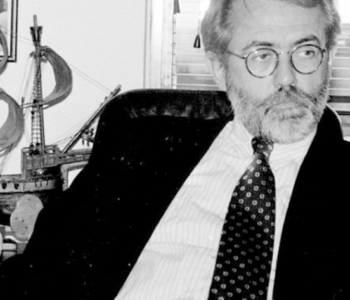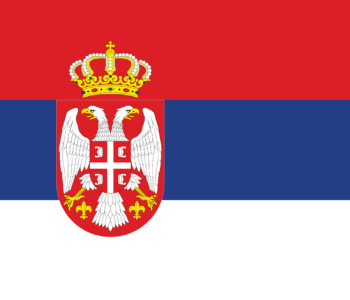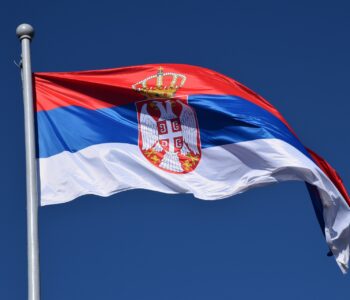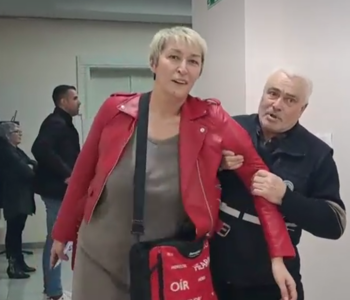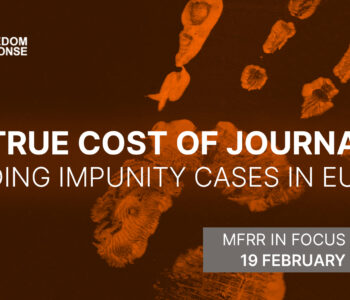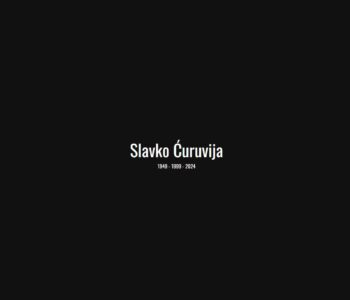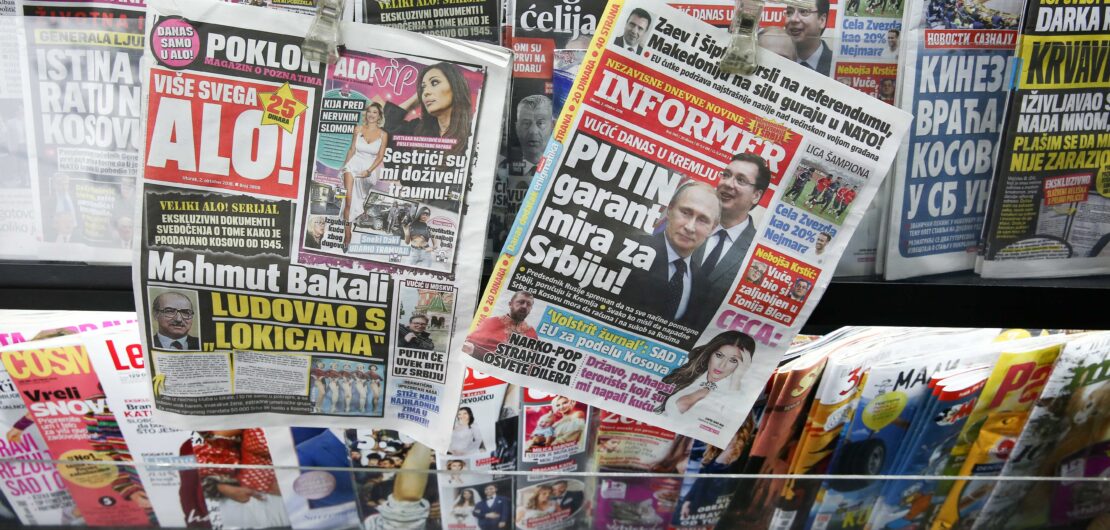 Library
Library
Serbia: Media independence is an exception rather than the…
Serbia: Media independence is an exception rather than the rule
Increasing political and financial pressure threatens the independence and editorial autonomy of many media outlets in Serbia. We interviewed Irina Milutinović, Senior Research Associate at the Institute of European Studies in Belgrade and co-author of the Country Report on Serbia of the Media Pluralism Monitor 2023.
Interview conducted by OBCT and originally published here.
According to the Serbia Media Pluralism Monitor 2023, editorial independence is one of the areas in which Serbia registers high risks. What are the main threats to editorial autonomy in the country?
Journalists suffer various forms of pressure, mostly of a political and financial nature. Independent editors in Serbia are an exception, rather than the rule. They are usually appointed by their media owners, who choose from among their loyal so that they can control journalists’ work from the inside through soft censorship.
Some significant forms of pressure come from SLAPPs as well as from smear campaigns, often initiated by state authorities and public officials and mostly targeting investigative and critical journalists as enemies of the country.
Political pressure is also applied through financial blackmail: state advertising and direct state subsidies are often allocated through politically biased and non-transparent mechanisms. Pro-government media are the biggest beneficiaries of this type of support, including tabloid media, although they often disregard the journalistic ethical code.
Finally, most TV and radio stations, as well as print media outlets, belong to companies that are under direct or indirect control of subjects close to the ruling party.
What impact do these challenges have on journalists and the quality of their work?
First, I want to point out that the Serbian media market is highly concentrated and polarised, which means that pro-government media are larger, more numerous, and more influential, while more critical ones have smaller coverage and proportionally weaker public influence. Pro-government media tend to instrumentalise issues of public interest to foster a we vs them dialectic, where “us” are usually described as patriots, while “them” as traitors.
Another important feature of the media landscape is poor content pluralism, as most outlets tend to adopt and support the government’s political agenda without any critical approach. So critical voices remain marginalised and lose their capacity to contribute to democratic processes: there is zero debate and no bottom-up transfer of their proposals on government’s decisions.
Does this situation impact citizens’ trust in the sector?
In general, citizens show low levels of trust in the media. Media literacy in Serbia is not good. Most citizens who live in marginalised communities are under a very strong influence of pro-government media. The public service broadcaster RTS has the biggest influence and is perceived as the most trustworthy media in the country.
What we notice is an increase in the number of people getting news online. In this regard, it is important to note that the digital space in Serbia is characterised by aggressive communication, threats, and insults, and the number of online attacks on journalists has increased, especially through social networks.
In recent years new Internet portals were opened without being properly registered: most of them do not publish an impressum so we don’t know who finances and owns them. A big problem is that these portals act as main spreaders of disinformation and fake news.
On the other hand, some digital media have become the real drivers of alternative voices. These portals usually deal with investigative and analytical journalism, offer diversified views, and give space to voices and topics that we cannot find in the mainstream media, such as corruption and criminal affairs, local community problems, human rights, ecology, etc. They are less exposed to political interference, so they have a bigger potential to function as platforms for democratic debate.
As part of the EU integration process, Serbia has to align with the EU set of norms, including those on media freedom. How would you assess the country’s legal framework regarding the media sector?
In October of last year, the National Assembly of Serbia introduced two new media laws: the Law on Public Information and Media and the Law on Electronic Media, whose provisions aim at implementing the objectives of the Media Strategy adopted in 2020.
Some positive developments must be noted. For example, the Law on Public Information and Media regulates in more detail the process of media co-financing and state aid. When it comes to the Law on Electronic Media, it introduces some provisions that potentially strengthen the independence of the Regulatory Authority for Electronic Media (REM) and others that prescribe a more transparent process for the allocation of public funds.
However, not all the provisions of the new laws are harmonised with the Media Strategy and the EU Audiovisual Media Services Directive.
Regarding editorial independence, for example, what is particularly worrisome is the return of the state to media ownership. According to the Law on Public Information and Media, state-owned companies can fund or own media outlets, a practice that is prohibited by the Media Strategy itself, which on the contrary recognises that the removal of every form of state participation in media ownership is a key factor for the improvement of media freedom in the country.
Do you think that the process of EU integration has an impact on the protection of press and media freedom in the country?
It is hard to say. It is true that the government occasionally undertakes some regulatory reforms as part of the EU accession process. But in practice, the adopted regulations are gradually ignored, so the ruling party manages to find ways to maintain and even increase their control over almost the entire media landscape.
Overall, I think the situation today is no better than, for example, ten years ago when the negotiation process formally began. I think the EU should honestly recognise that the Serbian government has reached the limits of its willingness to move Serbia forward along the path to EU membership.
Even if we don’t take into account Kosovo or the issue of sanctions on Russia, the rule of law and media freedom in Serbia are considered problematic areas that have blocked the opening of new negotiating clusters.
The institutional set-up has been further captured by the main governing party and the President himself. In this situation, the recognition that the current model is unsustainable if Serbia wants to move closer to EU membership seems to be the first step.
With this in mind, the EU should develop stronger relations with the main opposition parties in Serbia, sending a signal to Serbian citizens that there are other important political actors and partners in Serbia and that the ruling elite cannot claim that it is keeping Serbia on the EU membership path.
This interview was published by OBCT as part of the Media Freedom Rapid Response (MFRR) and within ATLIB – Transnational Advocacy for Freedom of Information in the Western Balkans, a project co-funded by the Italian Ministry of Foreign Affairs and International Cooperation. All opinions expressed represent the views of their author and not those of the co-funding institutions.

